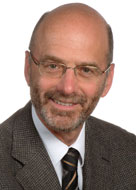A medical emergency can occur in any dental office; when this happens our goal is to manage the patient until they recover or until help arrives. Preparation is the key to successful management. This course outlines steps to take to prevent emergencies from occurring and outlines the basic principles that apply when they arise.
- Prevention of emergencies will be discussed by reviewing relevant drug interactions and the management of medically compromised patients.
- Emergency equipment and the pharmacology of resuscitative drugs will be reviewed.
- Protocols for specific emergencies, such as anaphylaxis, cardiovascular emergencies, respiratory emergencies, and local anesthetic toxicity, among others, will also be presented.
CONTENT UPDATE:
Please note the there is an update with respect to the management of a myocardial infarction (MI), which has not yet been incorporated into this presentation. The use of morphine has been removed as an optional drug for an MI, and that the use of oxygen is equivocal for an MI. Please note this when viewing the presentation.
IMPORTANT: This course does not qualify as a prerequisite for the Oral Sedation & Nitrous Oxide Sedation course with Dr. Daniel Haas. You must register for one of the Medical Emergencies courses offered by the University of Toronto Faculty of Dentistry Continuing Education Department to meet the registration requirements.

